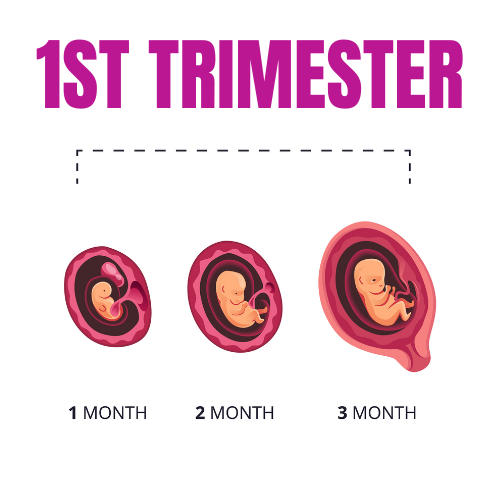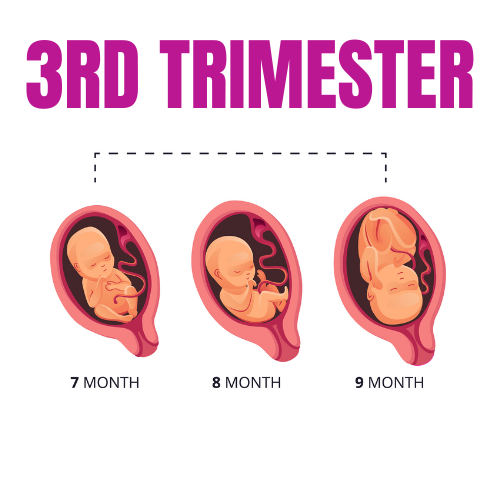Weekly baby growth explained! Find out what to expect during each week of your baby’s first year and how to nurture their development. From fetal development to newborn milestones, this guide covers it all.

Welcoming a new life into the world is one of the most magical experiences. Whether you’re a first-time parent or adding to your family, understanding your baby’s weekly growth can help you feel more prepared and connected. This guide will walk you through the stages of weekly baby growth, from the early weeks of pregnancy to the first year of life. We’ll cover key milestones, tips for nurturing development, and answer common questions to support you on this incredible journey.
Weekly Baby Growth During Pregnancy
First Trimester (Weeks 1–12)
The first trimester is a critical period for your baby’s development. Here’s what happens week by week:
Week 4: The embryo forms two layers, and the placenta begins to develop.
Week 5: The heart and blood vessels start to form, and you may feel fatigue or sore breasts.
Week 6: The baby’s heart begins to beat, and morning sickness may start.
Week 7: Eyes, nose, mouth, and ears begin to take shape.
Week 8: Tiny hands and feet with webbed fingers and toes appear, and lungs start to grow.
Week 9: Your baby starts to look more human.
Week 10: The most critical part of development is complete.
Week 11: Your baby starts kicking and stretching, though you won’t feel it yet.
Week 12: Toes can curl, and your baby can suck their thumb.

Second Trimester (Weeks 13–26)
During this phase, your baby grows rapidly:
Week 14: Fine hair grows, and your baby can turn their head and bring fingers to their mouth.
Week 20: You may feel your baby’s movements for the first time.
Week 26: The baby’s brain develops rapidly, controlling basic body functions.

Third Trimester (Weeks 27–40+)
The final stretch of pregnancy focuses on growth and preparation for birth:
Week 30–32: The central nervous system matures, and breathing movements begin.
Week 37: Your baby is considered full-term.
Week 40: Your baby is due, but many babies arrive a little later.

Weekly Baby Growth After Birth
Newborn Stage (Weeks 1–4)
Your baby will lose a little weight initially but will regain it by the second week.
They’ll start to focus on faces and respond to sounds.
Expect frequent feeding and sleeping patterns.
Infant Stage (Months 1–12)
Month 1–3: Your baby will start smiling, cooing, and lifting their head during tummy time.
Month 4–6: Rolling over, babbling, and reaching for objects become common.
Month 7–9: Crawling, sitting without support, and responding to their name are key milestones.
Month 10–12: Your baby may start standing, cruising, and saying their first words.
Tips for Nurturing Your Baby’s Growth
Nutrition: Breastfeeding or formula provides essential nutrients for growth.
Tummy Time: Helps strengthen muscles and supports motor development.
Stimulation: Use toys, music, and conversation to encourage sensory and cognitive development.
Routine: Establish a consistent sleep and feeding schedule.
Regular Checkups: Monitor growth and development with your pediatrician.
FAQ Section
1. How much does a baby grow every week?
During pregnancy, your baby grows rapidly, especially in the second and third trimesters. After birth, babies typically gain about 5–7 ounces per week for the first few months.
2. What are the key milestones in the first year?
Key milestones include smiling, rolling over, sitting up, crawling, and saying their first words.
3. How can I track my baby’s growth?
Use growth charts provided by your pediatrician and monitor developmental milestones.
4. When should I be concerned about my baby’s growth?
If your baby isn’t meeting milestones or shows signs of delayed development, consult your pediatrician.
5. What foods support baby growth after 6 months?
Introduce pureed fruits, vegetables, and iron-fortified cereals as complementary foods.
Conclusion
Understanding your baby’s weekly growth is an exciting way to stay connected and ensure they’re thriving. From the early days of pregnancy to the first year of life, every week brings new milestones and joys. By following these tips and staying informed, you can nurture your baby’s development and create a strong foundation for their future.

Your Trusted Pregnancy Due Date Calculator https://duecal.com/